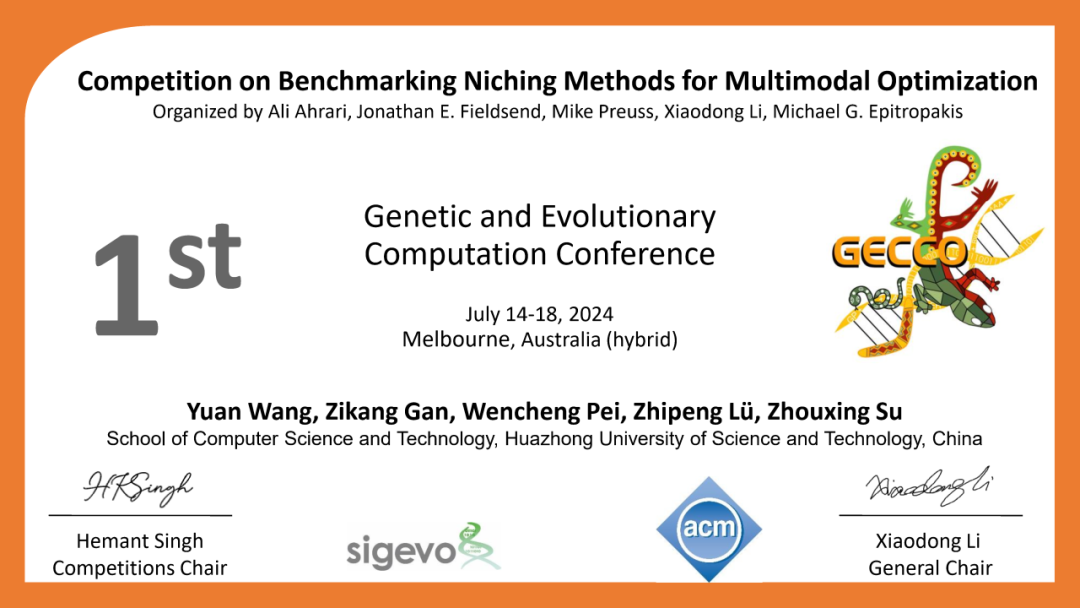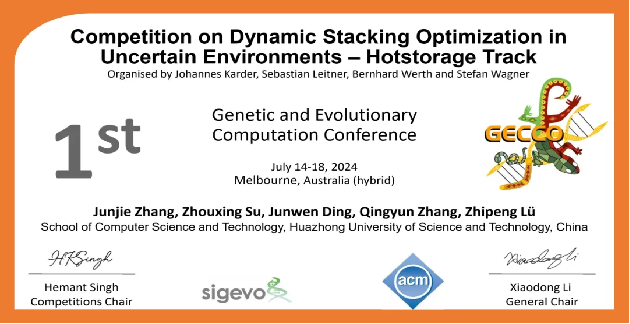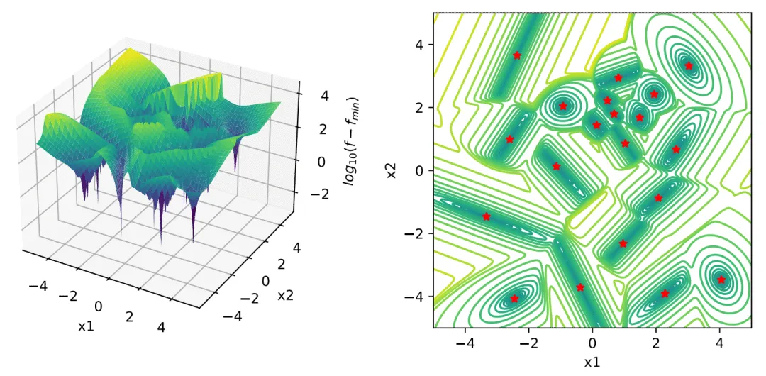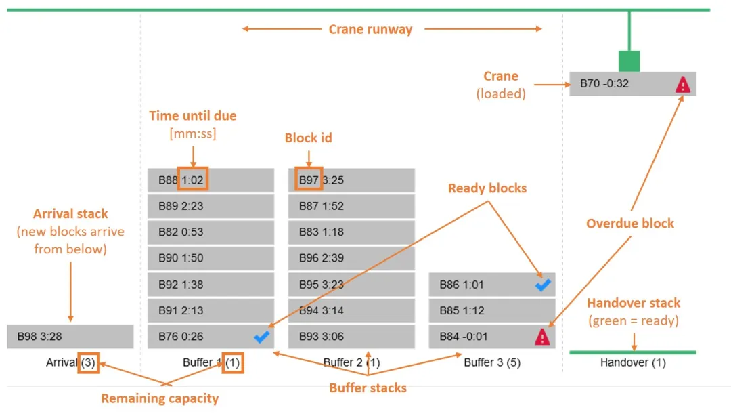Recently, a team led by Professor Lyu Zhipeng from the School of Computer Science and Technology at HUST claimed two championships at the international Genetic and Evolutionary Computation Conference (GECCO) 2024 competitions. The team won the Benchmarking Niching Methods for Multimodal Optimization and Dynamic Stacking Optimization in Uncertain Environments (Hotstorage) contests.


GECCO, organized by the Association for Computing Machinery (ACM), is a significant international genetic and evolutionary computation conference. Since 1999, the event has brought together researchers and practitioners from academia and industry to discuss and present the latest developments and applications in areas such as genetic algorithms, evolutionary programming, evolutionary strategies, differential evolution, multi-objective optimization, and evolutionary machine learning.
The Multimodal Optimization Niching Methods Competition focused on black-box multimodal continuous optimization. Black-box optimization deals with scenarios where the optimization target cannot be easily described by an analytical expression, making incremental evaluation difficult and time-consuming. Multimodal optimization aims to find as many global and local optimal solutions as possible within a vast search space, helping decision-makers by providing multiple choices. The search space often includes numerous peaks and valleys, requiring algorithms to balance global and local exploration while maintaining diversity. Black-box multimodal optimization applications span industries like semiconductors, mechanical engineering, architecture, and materials, where they aid in automated design tasks such as optimizing circuit parameters, mechanical structure strength, aerodynamic performance, and metallurgical processes.

Multi-modal Black-box Optimization Algorithm
Professor Lyu's team designed a multimodal black-box optimization algorithm that addressed the problem’s multi-peak and black-box characteristics. By combining niching methods, clustering, and evolutionary algorithms, the algorithm divided the problem space into different regions for exploration, achieving breakthroughs in redundant solution detection, local refinement, and tabu-based restarting. The team’s algorithm outperformed competitors in all instances, leading in both F1 score and accuracy, and providing a viable solution for multimodal black-box optimization challenges. Team members included graduate students Wang Yuan, Pei Wencheng, and PhD student Gan Zikang, with additional guidance from professors Su Zhouxing.
The Dynamic Stacking Optimization in Uncertain Environments Competition centered on scheduling port container stacking operations in uncertain and dynamic environments. Competitors were tasked with using gantry cranes to move a series of containers from an arrival zone to a delivery zone via buffer stacks within a given time window. The goal was to minimize blockages in the arrival area, reduce the number of delayed containers, and optimize crane movement. Factors like container arrival times, readiness times, and crane travel times were all subject to dynamic uncertainties, requiring robust and real-time optimization algorithms. This problem mirrors real-world challenges in port container scheduling and industries like steel, prefabrication, logistics, supply chain management, and construction, where similar scheduling and optimization challenges exist.

Schematic Diagram of Stack Scheduling Operation for the Hotstorage Track
Professor Lyu's team addressed these dynamic uncertainties by designing a multi-objective heuristic optimization algorithm that incorporated strategies like "max-min" heuristics, weighted ranking, and beam search. After four months of iterative improvement and fine-tuning, their algorithm surpassed other teams on both test and final case sets, securing the championship in the final round. Key contributors included PhD student Zhang Junjie and guidance from professors Ding Junwen, Su Zhouxing, and Zhang Qingyun.
Professor Lyu Zhipeng's lab has been focusing on solving complex problems through algorithmic research and industrial applications for over 40 years, consistently achieving international success. Their notable achievements include winning two championships at the 2022 DIMACS Vehicle Routing Optimization Challenge, the 2021 ICCAD Layout and Routing International Algorithm Competition, and winning the GECCO Optimal Camera Layout Algorithm Competition and Dynamic Stacking Optimization Competition from 2020 to 2022 for three consecutive years. The lab also won the SAT International Algorithm Competition's main track championship in 2017.
